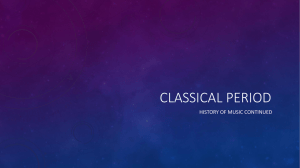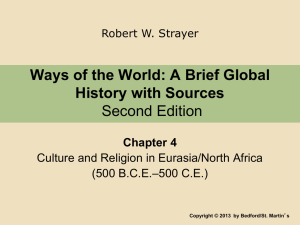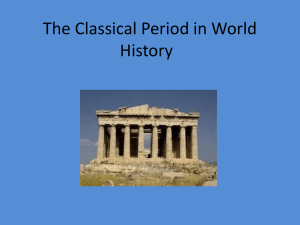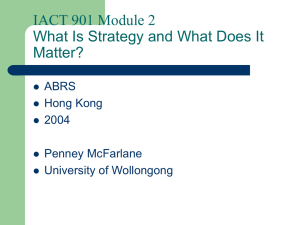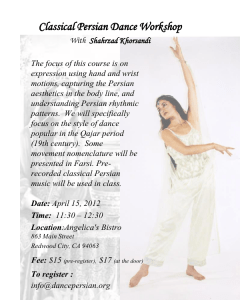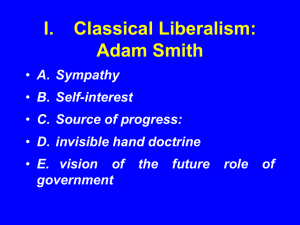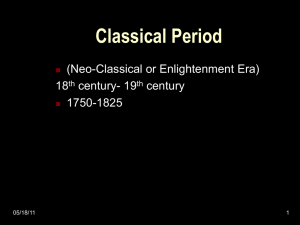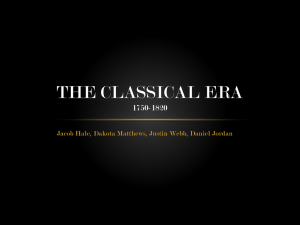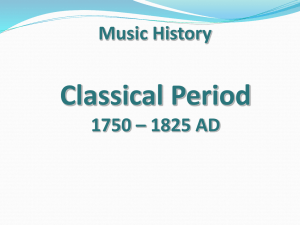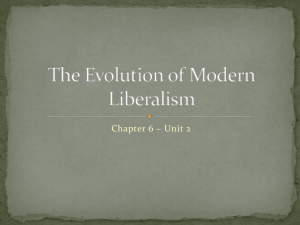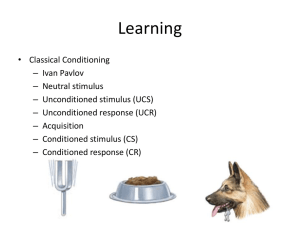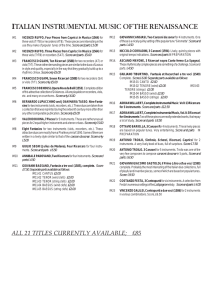Classical Period - Markham Woods Middle School Band
advertisement
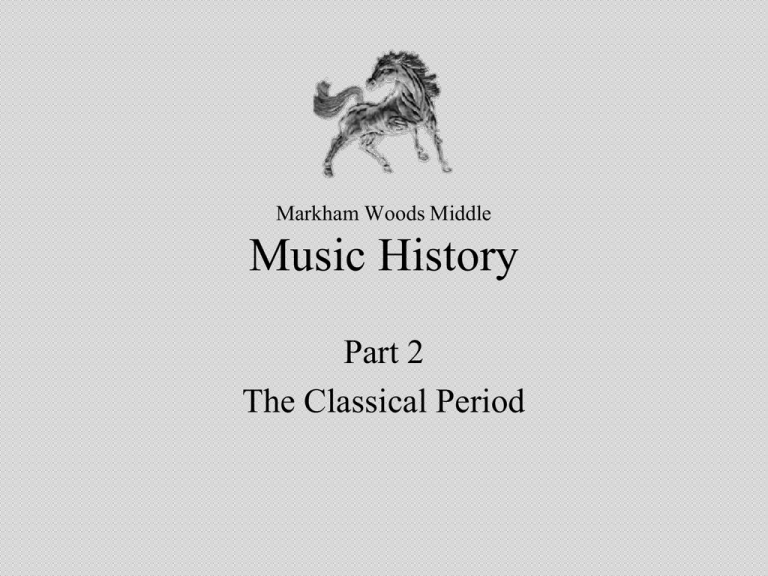
Markham Woods Middle Music History Part 2 The Classical Period Classical Period • 1750 – 1820 • More defined beginning of the period relating to style • Rococo style originated in France • Music was light and embellished Classical Period Vocal Music • Opera – – – – Featured vocal ensemble rather than solo Reflected the music of the time period More dramatic music for effect Orchestra expanded and featured • Religious Music – Reflected a more Baroque and Opera style Classical Period Instrumental Music • Symphony – Resembles modern Symphony Orchestra • Strings: Violin, Viola, Cello, Bass • Woodwind: Flute, Oboe, Clarinet, Bassoon • Brass: Trumpet, Horn, Trombone • Percussion: Timpani Classical Period Instrumental Music • Chamber Orchestra – Small ensemble, one to a part • String Quartet (most popular) • Mixed Trio, Quartet and Quintet • Keyboard Music – Sonata for Piano & Harpsichord Classical Period Instruments • Violin Classical Period Instruments • Viola Classical Period Instruments • Cello Classical Period Instruments • Bass Classical Period Instruments • Flute Classical Period Instruments • Oboe Classical Period Instruments • Bassoon Classical Period Instruments • Clarinet Classical Period Instruments • Trumpet – Flatt - double slide • Designed By Henry Purcell Classical Period Instruments • Trumpet – Tromba de Tirarsi - Single Slide Classical Period Instruments • Trumpet – Natural - No Slide Classical Period Instruments • Horn – Hand Horn Classical Period Instruments • Trombone Classical Period Instruments • Timpani Classical Period Composers • Wolfgang Amadeus Mozart – Child prodigy, wrote “Twinkle Twinkle Little Star” • The Marriage of Figaro*, Don Giovanni, The Magic Flute Classical Period Composers • Joseph Haydn – Employed by Prince Nicholas Esterhazy for 30 years – Composer of mostly string quartets – Composition Teacher
